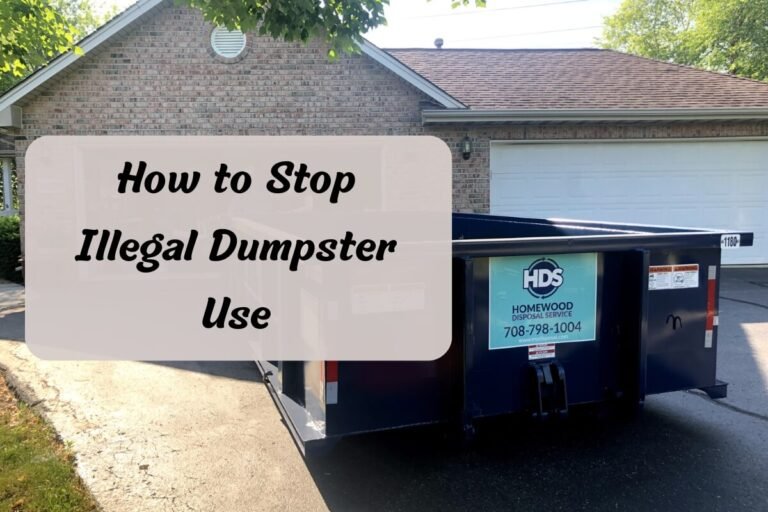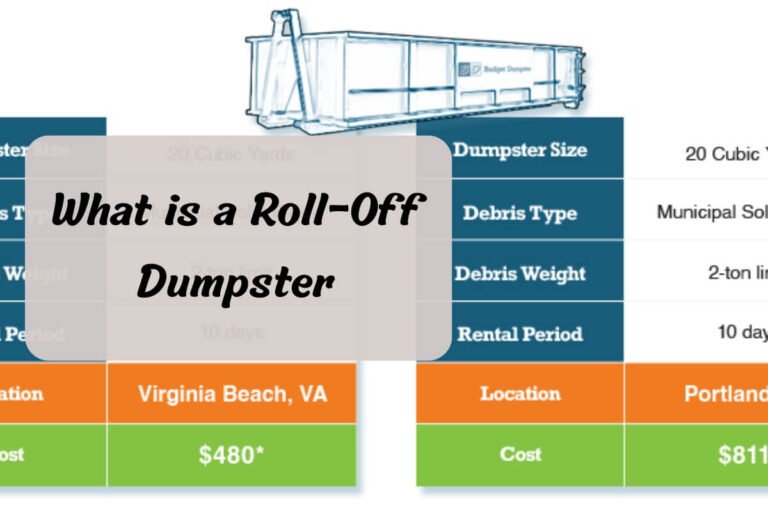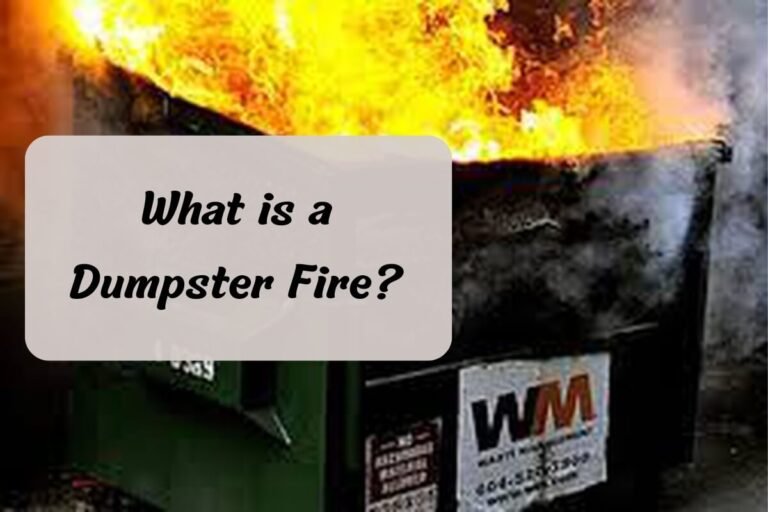What is a Dumpster Diver? A Comprehensive Guide

In this comprehensive guide, we’ll explore the fascinating world of dumpster diving and uncover what it means to be a “dumpster diver.” We’ll cover various aspects, including the definition, motivations, types of dumpster divers, common finds, legal considerations, and the community surrounding this unique practice.
Dumpster diving, also known as trash picking, bin diving, or frugal foraging, is the act of rummaging through commercial or residential dumpsters and trash receptacles in search of valuable or usable items that have been discarded. While it may sound unorthodox or even unappetizing to some, dumpster diving has a dedicated following and serves as a means of reducing waste, saving money, and finding unique treasures.
The World of Dumpster Diving
At its core, dumpster diving involves exploring the contents of dumpsters, trash cans, and other receptacles for items that still have value or usefulness. This practice challenges the traditional notion that everything in the trash is worthless or unusable.
People engage in dumpster diving for various reasons, including:
- Cost savings: By finding and repurposing discarded items, dumpster divers can save money on everyday necessities like food, clothing, furniture, and electronics.
- Environmental consciousness: Dumpster diving helps reduce waste by giving a second life to items that would otherwise end up in landfills or incinerators.
- Curiosity and adventure: For some, dumpster diving is a thrilling and adventurous hobby that allows them to explore and discover unique finds.
- Necessity: In some cases, individuals may turn to dumpster diving out of financial necessity or food insecurity.
Dumpster diving, though unappealing to some, has a rich history and a dedicated community that finds value in discarded items.
Who Dumpster Dives?
Dumpster divers come from diverse backgrounds and have varying motivations. Some of the common types of dumpster divers include:
- Hobbyists: These are individuals who pursue dumpster diving as a recreational activity, often driven by the thrill of the hunt and the anticipation of finding unique or valuable items.
- Environmentalists: Motivated by a desire to reduce waste and promote sustainability, environmentally conscious dumpster divers aim to give new life to discarded items and minimize their environmental impact.
- Frugal livers: For those seeking to live a minimalist or cost-effective lifestyle, dumpster diving provides an opportunity to acquire necessities without spending money.
- Scavengers: In some cases, individuals may resort to dumpster diving out of necessity, such as those experiencing homelessness or food insecurity, in search of food, clothing, or other essential items.
While accurate statistics on the prevalence of dumpster diving are limited, anecdotal evidence suggests that it is a growing practice, particularly in urban areas and among younger generations.
What Do Dumpster Divers Find?
The range of items found by dumpster divers is vast and often surprising. Some common finds include:
- Food: Dumpster divers frequently find edible food discarded by restaurants, grocery stores, and other food establishments, often due to expiration dates or minor imperfections.
- Electronics: Discarded electronics, such as computers, televisions, and smartphones, are highly sought after by dumpster divers, as they can often be repaired or repurposed.
- Clothing: Clothing stores, fashion retailers, and even residential dumpsters can yield gently used or even brand-new clothing items.
- Furniture: Dumpster divers have been known to find furniture, ranging from tables and chairs to couches and bookshelves, that may require minor repairs or refinishing.
- Books and media: Libraries, bookstores, and individuals often discard books, magazines, DVDs, and other media that can be salvaged by dumpster divers.
In addition to these common finds, dumpster divers have encountered some truly remarkable and unusual items, such as valuable artwork, rare collectibles, and even cash or jewelry. These unexpected discoveries add to the excitement and allure of dumpster diving for many enthusiasts.
Where to Dumpster Dive?
Dumpster diving can happen anywhere with a trash can, but some places are better than others. Popular spots include:
- Retail stores: Big-box retailers, clothing stores, and electronics stores often discard unsold or returned merchandise, providing a treasure trove for dumpster divers.
- Restaurants and grocery stores: Food establishments frequently discard edible food due to expiration dates or minor blemishes, making their dumpsters a prime target for those seeking free food.
- Colleges and universities: With students constantly moving in and out, college campuses and surrounding areas can be goldmines for furniture, electronics, and other discarded items.
- Construction and renovation sites: Dumpsters at construction or home renovation sites may contain salvageable building materials, fixtures, or appliances.
- Residential areas: While residential dumpsters can be hit or miss, they can sometimes yield valuable finds, especially during move-out periods or when homeowners are decluttering.
Successful dumpster diving often involves developing a routine, learning the schedules of waste collection in different areas, and establishing a network of fellow divers who can share tips and hot spots.
Is Dumpster Diving Legal?
The legality of dumpster diving is a complex and often debated topic. In most cases, the legality depends on various factors, including location, local ordinances, and whether the dumpster is on public or private property.
In the United States, a landmark Supreme Court case, California v. Greenwood (1988), established that individuals do not have a reasonable expectation of privacy for items they have discarded in public areas, such as curbside trash bins or publicly accessible dumpsters. However, this ruling does not necessarily extend to dumpsters located on private property or those with explicit “No Trespassing” signs.
Dumpster diving is not usually illegal, but there are risks and consequences to consider:
- Trespassing: Accessing dumpsters located on private property without permission can be considered trespassing, which is generally illegal.
- Theft or larceny charges: If a dumpster diver is caught taking items of significant value, they could potentially face theft or larceny charges, depending on local laws and the value of the items.
- Ordinance violations: Some municipalities have specific ordinances prohibiting or restricting dumpster diving, which can result in fines or other penalties if violated.
- Health and safety concerns: Dumpster diving can pose health and safety risks, such as exposure to hazardous materials, sharp objects, or even confrontations with property owners or law enforcement.
It’s essential for dumpster divers to familiarize themselves with local laws and regulations, respect private property boundaries, and exercise caution and common sense during their activities.
Benefits of Dumpster Diving
Despite its unconventional nature, dumpster diving offers several potential benefits:
- Environmental impact: By rescuing usable items from the waste stream, dumpster diving helps reduce the amount of waste sent to landfills or incinerators, thereby minimizing the environmental impact of excessive consumption and disposal.
- Cost savings: For those on a tight budget, dumpster diving can provide access to necessities like food, clothing, and household items at no cost, allowing for significant cost savings.
- Recycling and upcycling opportunities: Many dumpster divers engage in creative repurposing or “upcycling” of their finds, giving new life to discarded items and promoting a circular economy.
- Unique finds and experiences: Dumpster diving can yield rare or unique items that may hold sentimental or monetary value, adding an element of excitement and adventure to the practice.
- Minimalist living: For those embracing a minimalist lifestyle, dumpster diving offers a way to acquire necessities without contributing to excessive consumption or waste.
Dumpster diving has benefits for environmental sustainability, cost savings, and creative reuse, making it a popular practice.
The Dumpster Diving Community
Within this community, seasoned dumpster divers offer advice on the best techniques, hotspots, and strategies for navigating the world of trash picking safely and ethically. They also share stories of their most remarkable finds, fostering a sense of excitement and accomplishment among fellow enthusiasts.
Online forums like Reddit’s /r/DumpsterDiving and dedicated websites serve as virtual gathering places, where dumpster divers can exchange tips, ask questions, and showcase their latest discoveries. These platforms often feature discussions on legal considerations, dumpster etiquette, and responsible practices to minimize any negative impact on the community or environment.
In addition to online communities, many cities and towns have local dumpster diving groups that organize meetups and group dives. These events provide an opportunity for newcomers to learn from experienced divers, explore new locations together, and build connections with like-minded individuals.
Some dumpster diving enthusiasts have even taken their passion a step further by creating educational content, such as YouTube channels or blogs, where they document their adventures, share valuable insights, and inspire others to embrace this unconventional lifestyle.
Responsible and Ethical Dumpster Diving
Dumpster diving requires responsible and ethical behavior. Here are some guidelines to follow:
- Respect private property: Always obtain permission before accessing dumpsters located on private property, and never trespass or cause any damage to the premises.
- Leave no trace: After rummaging through a dumpster, ensure that you leave the area clean and tidy, properly replacing any lids or covers.
- Practice safety: Be cautious when diving into dumpsters, as they may contain sharp objects, hazardous materials, or even wildlife. Wear appropriate protective gear and exercise caution.
- Avoid contamination: If you plan to consume or repurpose food items found during dumpster diving, follow proper food safety guidelines and avoid anything that appears contaminated or spoiled.
- Be respectful: Dumpster diving should be a discreet activity, and it’s crucial to respect the privacy and property rights of others. Avoid creating disturbances or drawing unnecessary attention to your activities.
By adhering to these principles, dumpster divers can minimize any negative impact on the community and help promote a positive perception of this unique practice.
In Short..
Dumpster diving, while unconventional, has emerged as a fascinating and multifaceted phenomenon. From hobbyists seeking unique finds to environmentalists striving to reduce waste, and individuals driven by necessity or a desire for a minimalist lifestyle, the world of dumpster diving attracts a diverse range of individuals.
This practice offers numerous benefits, including cost savings, environmental sustainability, and the opportunity to uncover valuable or interesting items that would otherwise end up in landfills. However, it’s crucial to approach dumpster diving responsibly, adhering to local laws and regulations, respecting private property boundaries, and prioritizing safety and ethical considerations.
The dumpster diving community serves as a valuable resource for enthusiasts, providing a platform for sharing knowledge, tips, and experiences, fostering a sense of camaraderie among those who embrace this unique lifestyle.
As society continues to grapple with issues of excessive consumption and waste, dumpster diving may become an increasingly relevant and valuable practice, challenging traditional notions of what is considered valuable and promoting a more sustainable and resourceful approach to living.






